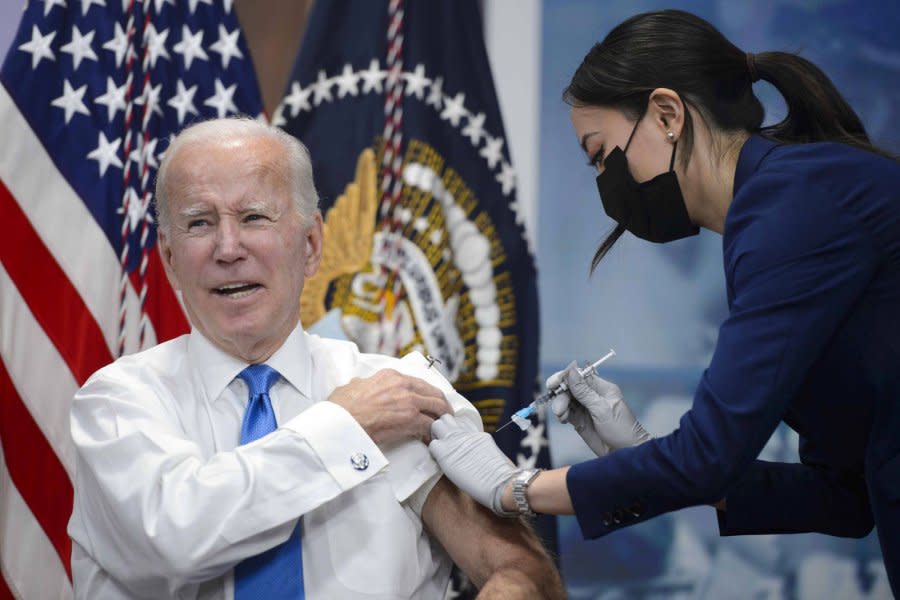Study finds U.S. COVID-19 vaccine promotion campaign saved 50,000 lives

May 6 (UPI) -- The "We Can Do This" COVID-19 public education campaign launched by the White House in 2021 to increase confidence in vaccines succeeded in saving more than 50,000 lives, according to a study published Monday.
Researchers from the communications strategy firm Fors Marsh found that the campaign also prevented hundreds of thousands of hospitalizations and millions of COVID-19 cases, benefiting the nation to the tune of hundreds of billions of dollars in less than one year.
"Findings suggest that public education campaigns are a cost-effective approach to reducing COVID-19 morbidity and mortality," the authors concluded in the study published in the Journal of Health Communications.
The researchers said they took a close look at the We Can Do This campaign, which was officially launched by the Biden administration in April 2021. Touted at the time as one of the largest public health education efforts in U.S. history, the Department of Health and Human Services promoted COVID-19 vaccine acceptance by using "integrated, multichannel, research-based strategies."
The aim was to reach 90% of U.S. adults at least once per quarter with extra emphasis placed on high-risk communities. Officials rolled out 7,000 advertisements in 14 languages, including geographically and ethnically tailored multimedia messages using "trusted messengers" to convince "vaccine-hesitant populations" to roll up their sleeves.
The researchers said they assessed the success of the campaign via data collected in the first three waves of the COVID-19 Attitudes and Beliefs Survey, or CABS, a "nationally representative, probability-sampled longitudinal survey" of U.S. adults administered every four months starting in January 2021.
The web-based surveys asked participants about COVID-19 vaccination, their attitudes and beliefs about COVID and preventive behaviors, as well as what they recalled about their exposure to the We Can Do This campaign.
A total of 4,398 respondents completed the Wave 1 survey (conducted January-February 2021), of whom 3,962 completed the Wave 2 survey (May-June 2021) and 3,642 completed the Wave 3 survey (September-November 2021).
According to the study, from April 2021 to March 2022, the net benefit of the campaign, defined as how much money these efforts saved minus how much they cost, came to $731.9 billion, translating to a return on investment of $89.54 for every $1 spent.
HHS officials on Monday hailed the results as confirming the campaign encouraged 22.3 million people to complete their primary COVID-19 vaccination series between April 2021 and March 2022, thus preventing nearly 2.6 million SARS-CoV-2 infections and 244,000 hospitalizations during a period when the highly contagious Delta and Omicron virus variants were quickly spreading.
"HHS is responsible for protecting the health and well-being of all Americans. As stewards of the public's money, we wanted to deliver impact for the American people in the most efficient and effective ways," Heath and Human Services Secretary Xavier Becerra said in a statement.
"This confirms we did exactly that. We will no doubt use what we learned in this campaign to further improve our public health efforts in the future," he added.

